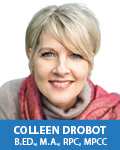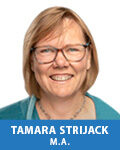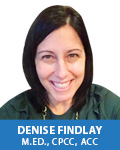 Important Notice:
Important Notice:
Online registration is now CLOSED for this conference. You can arrive up to one hour early to register at the door.
Presented by Gordon Neufeld, Ph.D. and Deborah MacNamara, Ph.D. and Maria LeRose, M.Ed. and Geneviève Brabant, MSW, RSW and Colleen Drobot, B.Ed., Dip. Of Special Education, M.A., RPC, MPCC and Denise Findlay, M,ED., CPCC, ACC and Eva de Gosztonyi, M.A. and Tamara Strijack, M.A.
Monday, November 25, 2019 – Wednesday, November 27, 2019 | Edmonton, ab
Online registration is now CLOSED for this conference. You can arrive up to one hour early to register at the door.
Monday, November 25, 2019 – Wednesday, November 27, 2019
9:00am – 4:00pm
DoubleTree by Hilton West Edmonton
16615 109th Ave NW, Edmonton, AB
phone: 780.484.0821
Emotion matters. Contrary to the received wisdom of the last few centuries, today’s science has revealed emotion to be at the heart of most matters and of what matters most. Emotion is now being recognized as Nature’s way of taking care of us. What is most needed then is an understanding of the working conditions required for emotions to be effective in their job. Our hope is that, in attending the conference, participants will be better informed as to the mission of emotion and what we all can do to support emotion in its work, especially with our children and youth. There could not be a more timely and important subject to discuss than emotional health and well-being.
This conference is a fundraiser for the Neufeld Institute and the offspring of a collaborative effort between Jack Hirose of Jack Hirose and Associates and Dr. Gordon Neufeld of the Neufeld Institute – a worldwide charitable organization delivering developmental science to those responsible for our children. The Neufeld Institute is deeply grateful for all who have extended themselves to make this event a success.
Although participants may choose to enroll in one day, two days or three days, the conference itself will be continuous in nature, building on the model and theoretical foundations that Dr. Neufeld will present in his keynotes on Day One and Two. Dr. Deborah MacNamara will also be delivering a keynote, adding her experience and perspective to this subject. Five more Neufeld Institute Faculty will flesh out this material with special applications in mind. On Day Three, participants will be in Maria LeRose’s most capable hands as she facilitates some dialogue and discussion between some of the key speakers, including Drs. Neufeld and MacNamara. New insights often emerge when in dialogue with each other, especially in the context of a live audience of informed participants.
Dear Colleagues and Friends,
On behalf of the Neufeld Institute, it is my great pleasure to welcome you to Edmonton for this three-day conference, Emotional Health and Well-Being: Towards Flourishing Children & Youth. I am so pleased to once again be partnering with Jack Hirose and Associates to bring you the third Neufeld Institute conference of this scale outside of the Vancouver area.
I am delighted that Dr. Deborah MacNamara has accepted my invitation to share the keynote responsibilities with me. I am also delighted that Maria LeRose has consented to moderate a panel, giving some of our key speakers the opportunity to interact with each other around this important and timely topic. Maria is my favourite interviewer of all time, and we are fortunate to have someone of her media experience and stature to help draw us out on this topic. I am also excited to have five of our seasoned Neufeld Institute Faculty lead the way to flesh out this topic in specific arenas of interest. This should be a unique opportunity for participants to unravel the mysteries of this complex and multi-layered dynamic.
We decided to go right to the heart of the matter with our topic in this conference. There is probably no dynamic or force that has been more eclipsed or misunderstood than emotion, nor more important to our functioning and well-being. Respect for emotion is growing, yet there is still much ignorance as to how to foster emotional health and maturation, especially in our children and youth. I am so pleased to be living in a day when enough pieces of the puzzle exist to create the picture that is needed to guide us. I am also pleased to have the opportunity to share this picture with the people who truly care for the ones who matter most –
our children and our students.
Yours sincerely,
Gordon Neufeld, Ph.D.
Clinical & Developmental Psychologist
Education and Clinical Professionals: K–12 Classroom Teachers, School Counsellors/Psychologists, Learning Assistance/ Resource Teachers, School Administrators, School Paraprofessionals including Special Education Assistants, Classroom Assistants and Childcare Workers. All other professionals who support students including but not limited to: Nurses, Social Workers, Psychologists, Clinical Counsellors, Family Therapists, Occupational Therapists, Speech Language Pathologists, Addiction Counsellors, Youth Workers, Mental Health Workers, Probation Officers, Police Officers, and Early Childhood Educators.
Parents, Caregiver, Foster Parents, Grandparents, and Extended Family raising a child.
9:00am - 10:15am, 10:45am - 12:00pm November 25, 2019
The scientific evidence is mounting that emotion is indeed at the heart of the matter, whether the issue is the stress response, problem behaviour, attention problems, learning problems, immaturity, or even mental illness. Given this new understanding, it only makes sense that emotional health and well-being should become our collective priority, whether it be at home, at school, or at work. But what is emotional health and well-being? How can we recognize it and foster it in ourselves, in our students, in our clients, and in our loved ones? Fresh understandings of the neurobiology of emotion are revealing interesting and surprising answers that have implications for us all.
Dr. Neufeld’s life’s work is to make sense of children to the adults responsible for them, in the hopes that this will lead to providing the conditions that are conducive to the unfolding of their full human potential. These insights on emotional health and well-being however apply universally and so should be of benefit to anyone, in any role.

Dr. Gordon Neufeld is a Vancouver-based developmental psychologist with over 50 years of experience with children and youth and those responsible for them. A foremost authority on child development, Dr. Neufeld is an international speaker, a bestselling author (Hold On To…
More information: www.neufeldinstitute.org
1:15pm - 2:30pm November 25, 2019
One of the primary responsibilities of emotion is to serve as a gateway to the brain, protecting our most vital organ from being overwhelmed by signals it cannot process. Yet hypersensitivity is becoming known as the condition in which the basic defensive work of emotion is somehow compromised neurologically, resulting in the brain being overwhelmed by input it cannot interpret. This deficit includes the ability to convert the raw emotional feedback from the body into differentiated feelings, the prerequisite for all emotional health and well-being. The implications for dealing with the hypersensitive are profound and start with making emotional well-being our core objective. With insight and patience, significant progress can be made.
1:15pm - 2:30pm November 25, 2019
Aggression is one of the primary indicators of emotions in trouble. The trouble with aggression – whether in ourselves or in others – is that it blinds us to the emotional roots of the problem. The result is usually interactions that only serve to exacerbate the underlying emotional problems. In this session, participants will learn how to read aggression, regardless of its form, as the pulse or state of the emotional heart. The implications for treatment are powerful and profound. This material not only applies to the more typical manifestations of aggression like hostility, meanness and violence, but also to suicide and more subtle forms of self-attack. It also has implications for how we view depression, especially when rooted in repressed frustration.

Geneviève Brabant, MSW, RSW, is a faculty member at the Neufeld Institute and a clinical social worker (MSW, RSW) with over 15 years’ experience working as a child and family mental health practitioner (therapist) in the Ottawa area. In 2010 she…
More information: www.neufeldinstitute.org/person/genevieve-brabant/
1:15pm - 2:30pm November 25, 2019
Anxiety is on the rise and afflicts more of us than not, manifesting itself
in a myriad of symptoms including obsessions, compulsions, phobias, panic, physical illness, learning problems, and more. Unfortunately, the emotional roots of anxiety are often eclipsed by the irrational obsessions or compulsive behaviour that become the focus of attention and intervention. In this session, Colleen will provide suggestions for how to read, access, and address the root primal emotion responsible for anxiety, thus fostering emotional health and well-being. Although the focus will be on children and adolescents, because the problem is universal, the material is applicable to all – educators, parents, helping professionals and ourselves.

Colleen Drobot, B.Ed., Dip. Of Special Education, M.A., RPC, MPCC, is a registered professional counsellor and parent consultant with a private practice in West Vancouver. She provides therapy for adults and also offers parent consulting for parents seeking to understand…
More information: www.neufeldinstitute.org/person/colleen-drobot/
2:50pm - 4:00pm November 25, 2019
Unfortunately for our children, the digital world is not only a highly wounding world but also interferes with the conditions required to recover from the stress it creates. It is not surprising, therefore, that the deterioration of emotional health in our children and youth so closely parallels the increase in digital preoccupation, both generally in society as well as in specific cases. There is no option for turning the clock back. Our only hope is to move forward to create the kinds of practices and rituals that will serve to safeguard their emotional health and well-being in the world they now inhabit. Tamara will provide some practical suggestions for how to do this, at home or at school.

Tamara Strijack, MA is a Registered Clinical Counsellor who lives and works in the Vancouver Island area. She is co-author (with Hannah Beach) of the book, Reclaiming our Students: Why our children are more anxious, aggressive and shut down than ever,…
More information: www.neufeldinstitute.org/person/tamara-strijack/
2:50pm - 4:00pm November 25, 2019
Nothing could be more stressful than facing separation in formative attachments, regardless of whether these relationships were a source of harm or not. And nothing is harder on emotional health than a stress reaction that gets stuck. It isn’t surprising, therefore, that foster children, adopted children, and children of divorce, are found to manifest more symptoms indicative of emotional un-wellness. The good news is that all children possess the potential to adapt and “bounce back” from emotionally challenging circumstances. In this session, Geneviève will focus on some of the impediments to emotional health in these children and discuss the keys to overcoming them.
2:50pm - 4:00pm November 25, 2019
Many students are able to overcome adversity, face loss and disappointment, accept not getting their way, and find creative solutions to problems. Yet not all students are so resilient. Many children who are very sensitive or have experienced trauma are even more in need of cultivating resilience from wounding and overstimulation. How can educators and schools cultivate resilience so that students will not only endure challenging experiences, but will be able to gain strength and confidence in their ability to cope with them? Based on years of working with Dr. Neufeld, teaching in schools, counselling families, and parenting, Colleen will provide strategies for educators to use in the classroom and the school setting to cultivate resilience in their students.
9:00am - 10:15am November 26, 2019
In Part II of the Keys to Emotional Health and Well-Being, Dr. Neufeld turns his focus specifically to those whose conduct and behaviour typically tend to mask the underlying emotional problems. Insight is absolutely critical when dealing with those who are more likely to be the cause of trouble than present as troubled. Dr. Neufeld uses the science of emotion to reveal the hidden stories of troubled kids as well as the common denominator that lies at the root of most problem behaviour. With understanding comes the power to make a difference that is truly effective and lasting.
10:45am - 12:00pm November 26, 2019
Neuroscience has paved the way to support what Freud once postured – we do have an emotional unconsciousness that operates outside of direct awareness. This is not a mistake, but part of the brain’s sophisticated capacity to defend and inhibit emotional awareness to serve survival needs. How does the brain inhibit vulnerable emotion? How can we create the conditions for the defences to come down? How can we become conscious of defences operating when they are meant to blind us in the first place? Developmental science provides answers to these puzzling emotional questions.

The official book launch for Deborah MacNamara’s new children’s book, The Sorry Plane, will take place at the Emotional Health & Well-Being: Towards Flourishing Children and Youth conference.
The Sorry Plane is a playful introduction for kids and their caregivers to the importance of understanding and respecting our feelings. It highlights how a good sorry is one that you mean from the heart and how adults can preserve a child‘s caring spirit.
The Sorry Plane bears the Neufeld Institute Recommended seal, which highlights children’s literature that is congruent with developmental science as well as with the relational-developmental approach articulated by Dr. Gordon Neufeld

Deborah MacNamara, PhD is a clinical counsellor and educator with more than 25 years’ experience working with children, youth, and adults. She is on faculty at the Neufeld Institute, operates a counselling practice, and speaks regularly about child and adolescent development…
More information: www.neufeldinstitute.org/person/deborah-macnamara/
1:15pm - 2:30pm November 26, 2019
This session provides an opportunity for participants to interact with Dr. Neufeld and Dr. MacNamara around the material presented in their morning keynotes.

Maria LeRose, M.Ed., is an award-winning television producer, and a producer of Educational Videos. She holds a Masters in Education with a concentration on social and emotional learning and development. Early in her career Maria worked in a variety of Social…
More information: http://marialerose.com/
1:15pm - 2:30pm November 26, 2019
If emotional health and well-being is at the heart of what really matters, it also follows that emotion should be the primary focus of healing and recovery. As a seasoned therapist and master of the attachment- based developmental approach, Colleen uses her theoretical lenses and professional experience to distill therapy to its essence, revealing the natural healing processes that can be harnessed both inside and outside the office. This session is suitable for all who want to make sense of the therapeutic process or who seek to be natural instruments of healing in whatever role they serve in society – parents, teachers or helping professionals. This session is also suitable for reflecting upon one’s own journey towards emotional health and well-being.
1:15pm - 2:30pm November 26, 2019
Ceremony has always been part of our First People’s pathway to emotional health and well-being. Ritual and remedy were woven together into a fabric of everyday culture. Only lately have some of these rituals become the subject of research in the scientific community. Denise has a unique vantage point as a member of the Squamish Nation, a native participant in ancient healing rituals, and a recognized western-based healer among her people. It is from this place that Denise will apply Neufeld’s attachment theory and fresh understandings of emotion to shed new light on some of the more common healing rituals that have been depended upon for millennia.

Tselkxáliya (Denise Findlay) is a Sḵwx̱wú7mesh scholar practitioner from the village of Xwemélch’stn and a PhD candidate in the Faculty of Education at Simon Fraser University. Denise is a published academic author whose background is in Philosophy of Educational Theory…
More information: WWW.NEUFELDINSTITUTE.ORG/PERSON/DENISE-FINDLAY
2:50pm - 4:00pm November 26, 2019
When emotions stop moving, we start to see the signs of problem behaviour. Expression of emotion is the first step in emotional development, and yet many children, adolescents and adults can get stuck here. We all need safe places to express the emotions that are stirred up within us, as well as release the build-up of emotional energy. The challenge is finding those safe places. In this session, we will explore natural playgrounds for emotion to come out and play, and how we might facilitate this process – for our children, our adolescents and ourselves.
2:50pm - 4:00pm November 26, 2019
Sometimes finding out what is going on inside of our brain and our body helps us to better understand and accept our somewhat messy psychological processes. This session will introduce participants to the neuroscience of emotional health, including resilience and adaptation. Why must the brain move us from Mad to Sad? How does the brain do this? What role do bio- chemicals play in whether we become defended or truly resilient? Then we will look at how we can create the space in our interactions with our children so that we can help them to become more deeply resilient. When we support the work of the brain, it can do the work it was meant to do.

Eva de Gosztonyi, MA, is a psychologist who has worked for over 45 years in schools across Canada. For 22 years she was the Coordinator of the Centre of Excellence for Behaviour Management, a support to the ten English School…
More information: https://neufeldinstitute.org/person/eva-de-gosztonyi/
2:50pm - 4:00pm November 26, 2019
Feelings of futility – in all their various manifestations – play a pivotal role in the story of emotional health and well-being. Even happiness, the most elusive of emotions, seems too often to lie on the other side of tears that have not yet been shed. Impediments to tears, however, abound in a tear-phobic society. Neufeld Institute Faculty will share some stories that highlight the role of tears in our quest for wellness.
9:00am - 10:15am November 27, 2019
In many ways, empathy could be considered a bellwether of emotional health and well-being. When emotions are in trouble, empathy will be in trouble as well. On the other hand, if our emotions are working as they should, empathy will be one of the ultimate fruits. When lacking insight regarding the emotional roots of empathy, we mistakenly think that empathy can be taught – a common misconception in both schools and homes today. Fostering the natural roots of empathy in our children and our youth will not only bring lasting results but will generalize across all aspects of their lives, including their future parenthood.
10:45am - 12:00pm November 27, 2019
This is a rare chance to see the engaging Maria LeRose do what she does best – get to the heart of the matter in her interviews with her subjects. She will be talking to participants and attending sessions throughout the conference in preparation for this panel. Maria will facilitate dialogue between the participants and the presenters, as well between the presenters themselves, all in the quest of shedding more light on the secrets of emotional health and well-being.
1:15pm - 2:30pm November 27, 2019
Restlessness is an epidemic among today’s children and youth. This takes on an even greater significance when we realize that restfulness is key to emotional health and well-being. Restlessness is also a typical signature symptom of many alarm problems, the most obvious being anxiety. When anxiety is chronic, rest is incredibly elusive despite being pivotal to healing and recovery. In this session, Dr. Neufeld explores the essence of the rest response and provides suggestions for how to bring the rest that is needed to those who are most in need of it.
1:15pm - 2:30pm November 27, 2019
We cannot make headway on the bullying problem until we make sense of the emotional roots that drive it. Our challenge has been that prevailing approaches to bullying assume it is the result of learned behaviour or failed social skills acquisition, eclipsing the role of emotion altogether. To make sense of the bully is to deeply understand the vulnerability inherent to the human condition and to realize that no one is immune from this insidious dynamic. There is a way to render the bully fully human and humane again, but it begins by first understanding the dynamics of attachment and emotional vulnerability. Once we understand what is really going on inside the bully, we will be in a better position to put into place interventions.
1:15pm - 2:30pm November 27, 2019
When students in schools have significant emotional needs, we often find it a challenge to help them, especially with limited time and resources. Working with schools in Quebec and Alberta, we have successfully implemented safe spaces where these children can express their emotions and come to their tears. Safe Eruption Rooms (Emotions Rooms) were created to allow students who have frequent explosions a safe space in which to do so, accompanied by an adult who can welcome their frustration and tears. Nurturing Support Centres are locales within a school that allow those students who are unable to function in the regular classroom at certain times of the day to remain in school under the supervision of a caring adult.
2:50pm - 4:00pm November 27, 2019
These two esteemed attributes are often touted as evidence of emotional health and well-being. Dr. Neufeld will provide an explanation of why these attributes are missing in so many children as well as provide suggestions for how to cultivate these highly-prized traits in our children, our students, and even in ourselves. He will also provide insights as to how curiosity can be an antidote to attention problems of any kind, and in some cases, even serve to help children grow out of them.
2:50pm - 4:00pm November 27, 2019
Adolescents are faced with an explosion of awareness in emotion and thought. This alone can put them in a very vulnerable place, with temptations to escape at every turn. While a certain level of defence or armour is needed to survive in today’s often wounding world, when the defences become stuck, emotional health and true maturation are at risk. Tamara will discuss what emotional health looks like in adolescence and what we can do as caring adults to step in to foster their well-being.
2:50pm - 4:00pm November 27, 2019
Connection is foundational to emotional health and well-being. Yet establishing and maintaining good connection is not always easy, especially in today’s society where culture is no longer supportive of the relationships a child needs. Deborah uncovers the surprising role of play in both cultivating and preserving vital relationships and provides some very practical and easy-to-implement suggestions on how to harness the power of play for this purpose.
| Registration | Super Early Bird Fee | Early Bird Fee | Regular Fee |
|---|---|---|---|
| Individual 1 Day Enrollment | -- | $249 | $269 |
| Individual 2 Day Enrollment | -- | $449 | $469 |
| Individual 3 Day Enrollment | -- | $639 | $659 |
| Group 3-7 | -- | $619 | $639 |
| Group 8-14 | -- | $599 | $619 |
| Group 15+ | -- | $579 | $599 |
| Full-Time Student | -- | $579 | $599 |
All fees are in Canadian dollars ($CAD).
Fees do not include applicable taxes (5% GST).
Early bird cutoff date: November 21, 2019
The early bird date has passed. Regular rates apply.
Please review our Registration Terms and Conditions for information on our cancellation policy, payment policies, rebates, and more. You must agree to our Terms and Conditions to register for a workshop or conference.
Register Online Download Registration Form (.PDF) Register your Group
All brochures and forms are provided in .PDF format.
If you are unable to open our files, we recommend downloading Adobe Reader for free.
16615 109th Ave NW, Edmonton, AB
phone: 780.484.0821
Our rates:
To make a reservation over the phone, please call 780.484.0821 or 1.800.661.9804
Delux 2 Queen: $169.00 per night plus tax
1 King Suite: $194.00 per night plus tax
*please note, room reservations are subject to availability*
Please keep in mind when booking Jack Hirose and Associates corporate guest rooms, reservations booked for most hotels can be cancelled within 48 hours . If you are booking guest rooms through third party websites in many instances the reservations booked cannot not be cancelled.
Jack Hirose & Associates is approved by the Canadian Psychological Association to offer continuing education for psychologists. Jack Hirose & Associates maintains responsibility for the program.
† The Alberta College of Social Workers (ACSW) and the Newfoundland and Labrador Association of Social Workers (NLASW) accept CPA-approved CEUs.
* Participants will receive a certificate of completion after every workshop. Workshops are pre-approved for 5.5 or 6 credits per day unless otherwise specified.
* Please contact your accrediting body for more information on individual association requirements.
There are no related events at this time.